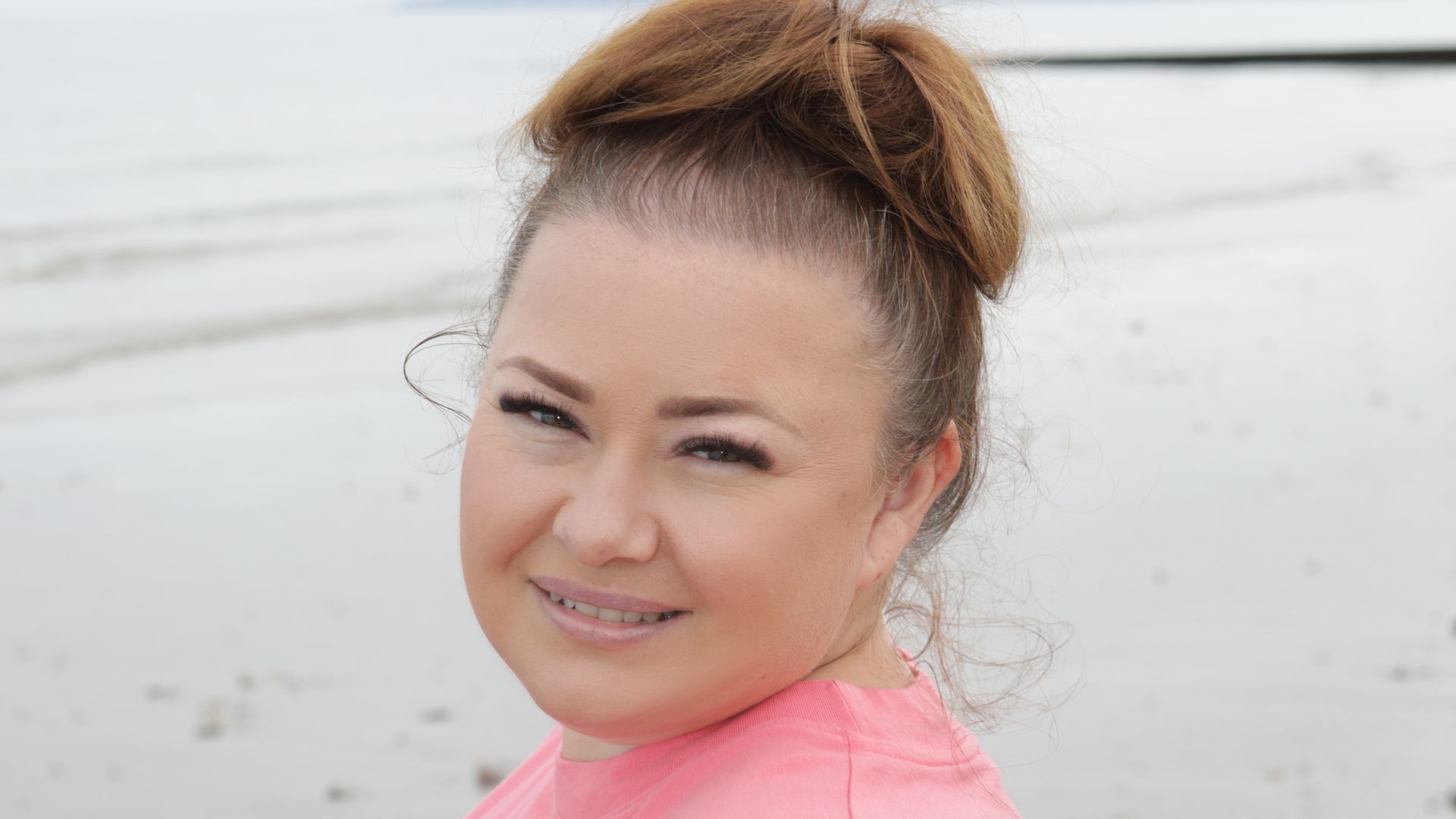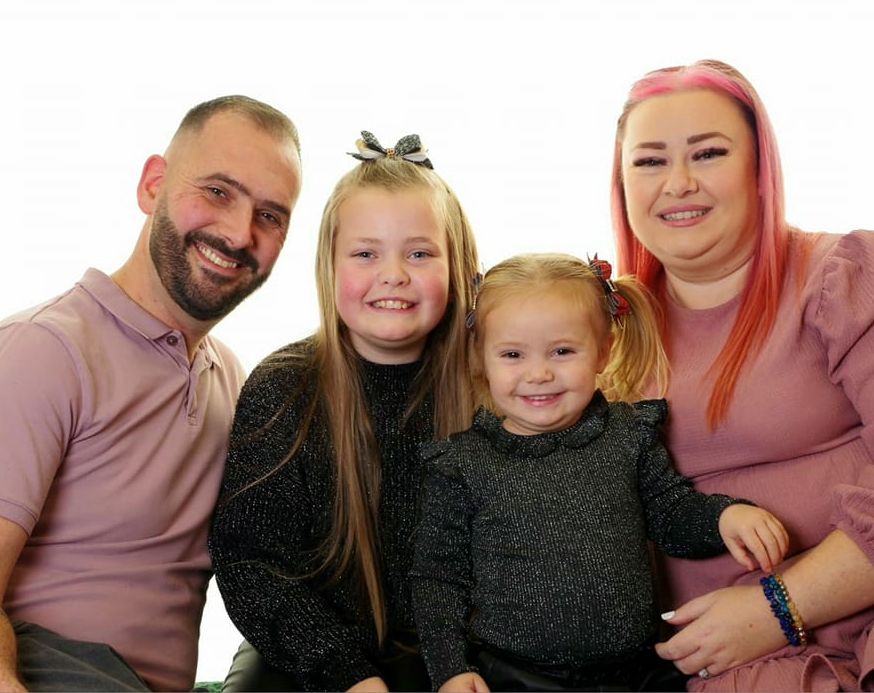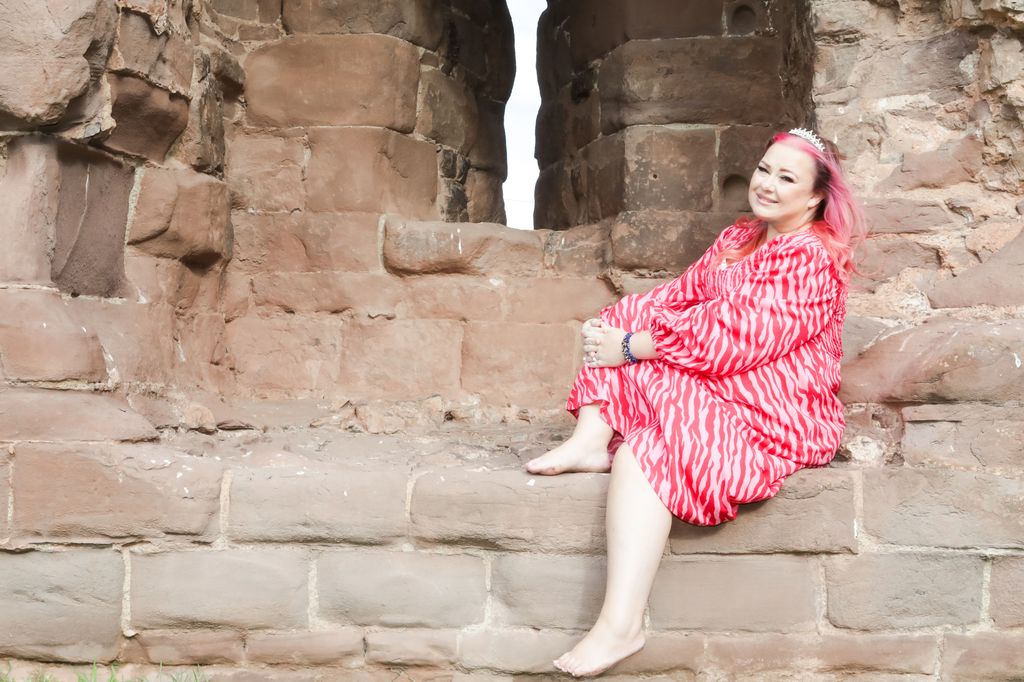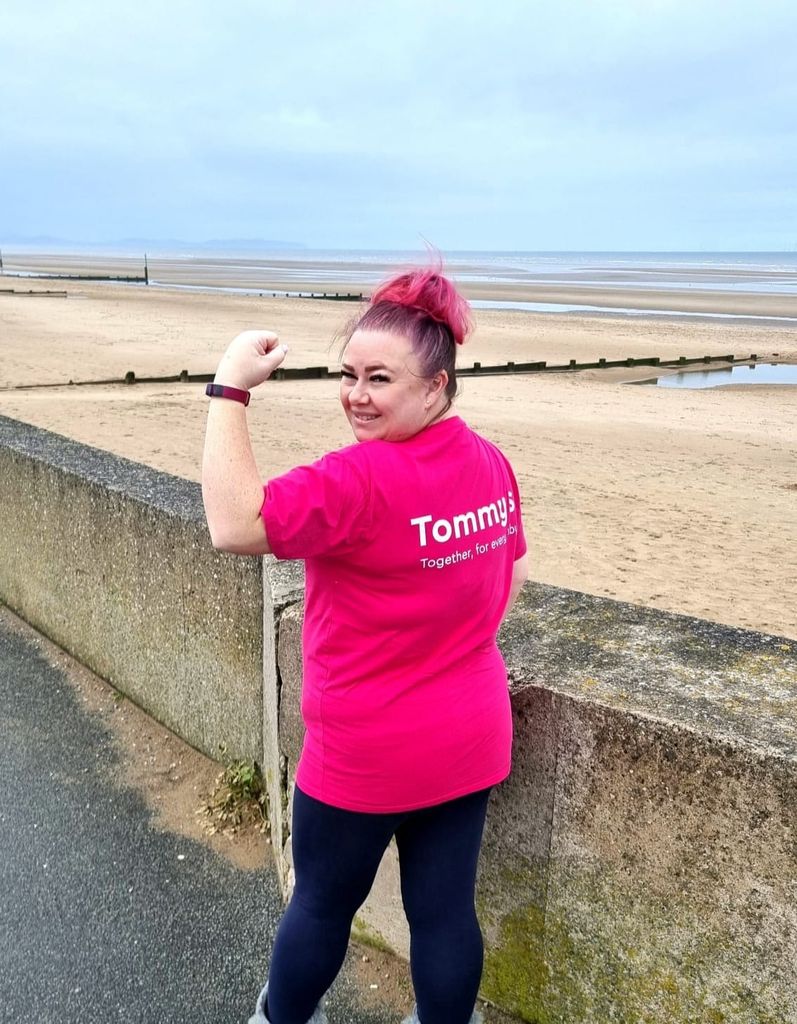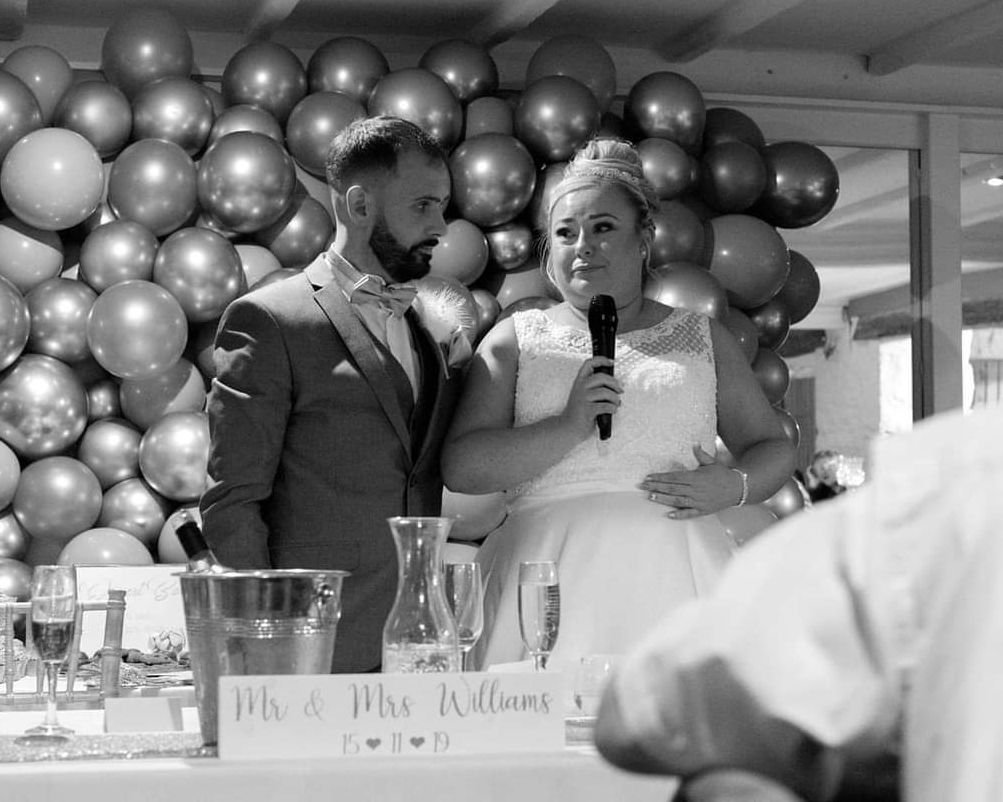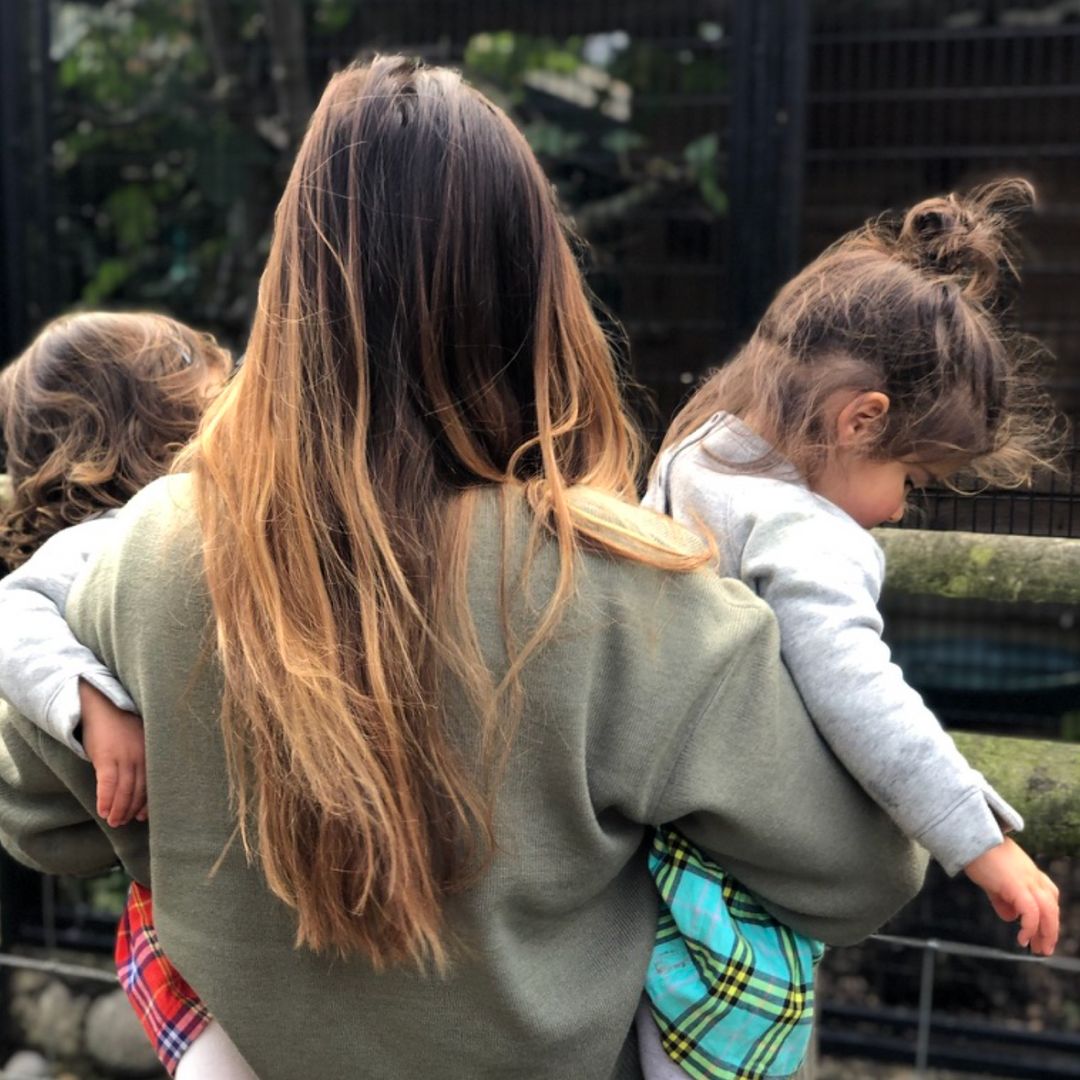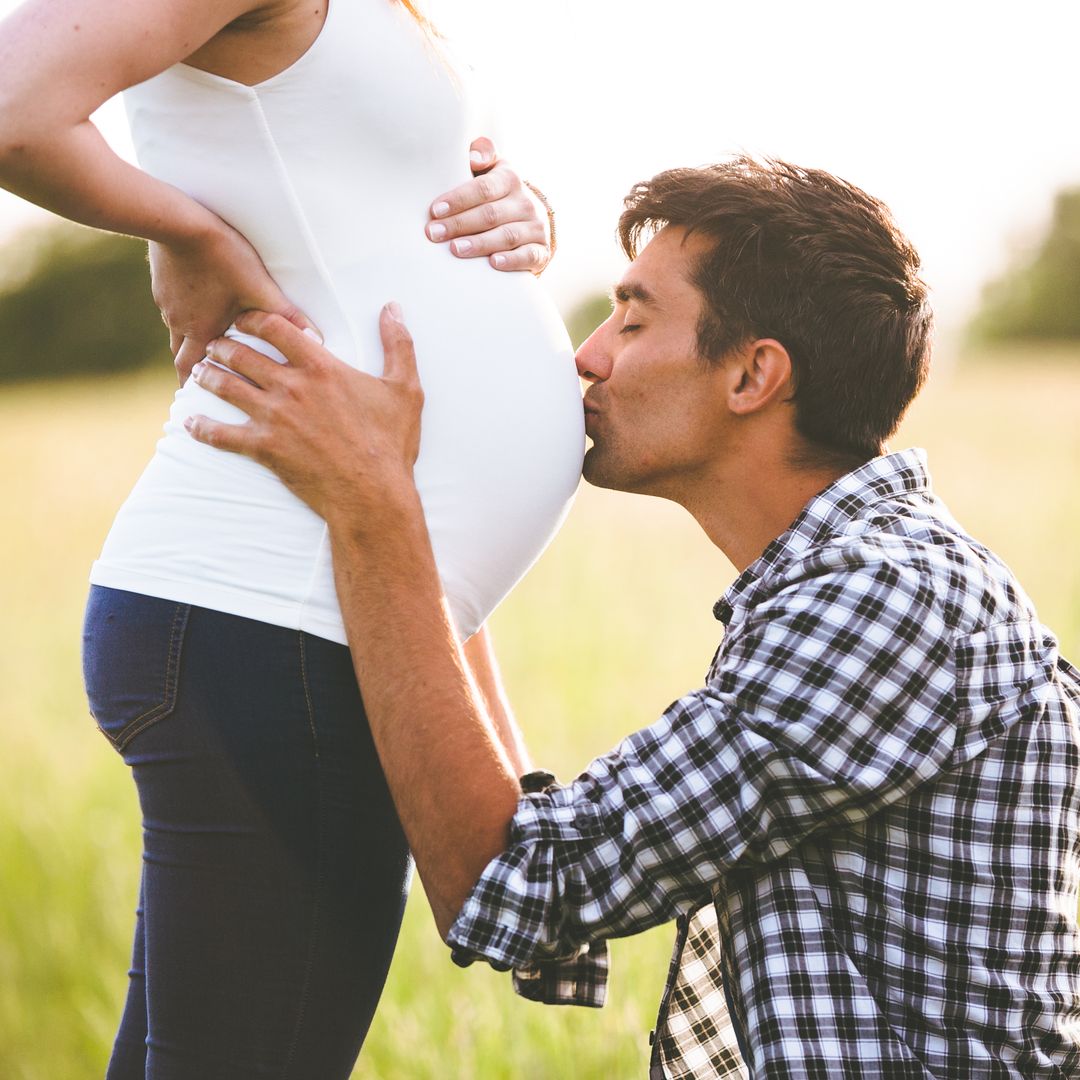It’s Baby Loss Awareness Week from 9-15 October and HELLO! is highlighting the crucial need to support families who have experienced the heartbreak of losing a baby.
A new YouGov survey has found half of UK adults have either experienced baby loss or know someone who has. One in four pregnancies ends in loss and one in 100 women have recurrent miscarriages.
Mum-of-two Lisa Williams, a vision board coach, author and podcaster from North Wales, heartbreakingly miscarried three times between the births of her two daughters, Alysa, 10, and Talia-Beau, three. Her angel babies are named Joy, River and Rain.
Below, Lisa shares her story and explains why there needs to be more support available for women experiencing baby loss…
Lisa’s first miscarriage
It was July 2016 when I had my first miscarriage. I woke in the night in so much pain – I’d never experienced anything like it.
The pain in my lower abdomen was excruciating, I was bleeding, my knees felt weak, and my body was sweaty. As I slowly walked towards the bathroom, my mind raced with questions.
Over the next few days, I knew something wasn’t right. I was tired, weak, and extremely low, so I took myself to the doctors where they confirmed I was pregnant.
I was referred to the Early Pregnancy Unit (EPU). Sitting in the waiting room you could hear a pin drop. A dull, intense silence addled with nerves and anxiety filled the room – it was torture. My name was called, and as I entered the dark room, I was informed that I had miscarried.
I felt numb. I later found out I had been around eight weeks pregnant. I felt broken, torn apart, and began to self-sabotage, telling myself I was ‘worthless as a woman’. I hated myself for not being able to carry a baby.
I did not know how to talk to anyone, so I kept these thoughts inside my head. I was fighting my inner demons over loss, grief, and self-worth. Only now do I understand the importance of looking after yourself and reaching out for help.
I went through my first two miscarriages alone; I didn’t even get offered any help by the NHS. If I had a heart attack, the health service wouldn’t wait for three heart attacks before offering support – but women are left to experience loss before they do anything.”
The next few months went by in a blur; I lived my life on autopilot. Work, home, and sleep. The negative self-talk continued to occupy my days.
Lisa's second miscarriage
Around six months later I found myself heading back to the EPU. As we took our seats in that same room, with that same dull silence, my heart raced.
Inside the dark black room, those same words: “I am afraid there is nothing in your womb.” I lay motionless as tears filled my eyes, my partner's hand gripping mine a little tighter.
I remember I felt so low; I had never been in such a dark place. I remember waking up and wanting it to be bedtime, I felt so lethargic and despondent each day. I loathed my worthless body.
It was at that point that I realised I needed to learn to love myself, so I went on a self-love journey to grow my confidence back.
During this time, several friends and family members announced their pregnancies and births. When a friend announces they’re pregnant and you’ve just had a miscarriage – that trauma, it bloody hurts.
I think it’s quite difficult for them too. One friend who I worked with said she’d been trying to tell me for weeks at work, but she hadn’t been able to find the words, so she ended up messaging me.
Further heartbreak
In November 2018, I got those two lines on a pregnancy test, all my dreams were finally coming true.
I spent lots of time resting; I didn’t do anything to jeopardise the baby. Each time I went to the toilet I’d be overcome by fear. Each time I felt a twinge I would stop still in silence.
But after two weeks, I found myself in that familiar dark room. I had some bleeding but no pain. So, I held my faith in the universe, longing for a voice to say, ‘We have a heartbeat.’ Those words never came.
During the next three months, the anguish remained. While my body didn’t experience any physical pain from this loss, the emotional pain was excruciating. I had to go back to that same hospital, daily, weekly, then fortnightly for three months as the hormones from the baby did not want to leave my body.
My heart was broken, but this third time around I didn’t blame myself. I had learned to love myself; I just grieved my babies.
Seeking support
It wasn’t until the third miscarriage that I asked for help.
I asked, ‘Is there any support available for this?’ and they handed me a Miscarriage Association leaflet book. By then, however, I was already fundraising for them and already featuring in their newsletters, so that support wasn’t relevant to me.
I ended up getting referred to my local GP and then went for counselling from there.
That was back in 2018, and sadly, I think the situation in the NHS is still the same. This is what Tommy’s are trying to change, to get support for women after each loss. No one should have to go through losing a baby on their own.
When a woman loses a baby, often friends and family people don’t know what to say to you because they aren’t sure if you’re open to speaking about it or not. Just asking if they want to go for coffee and chat, is a huge help.
Speaking to a friend can be like a counselling session. Sometimes you just need to get those feelings out of your body, so you’re not suppressing them.
You can get things like PTSD from miscarriage; there are lots of trigger responses. Speaking to somebody can help to lower that trauma response in the body.
I think men can find it harder to speak about baby loss because they are trying to be supportive of their partner, and they also have to process the emotions themselves, so it helps both women and men to talk.
Lisa’s rainbow baby
On 15 November 2019, my partner Phil and I married.
During our wedding ceremony, we honoured our three angel babies with names, which was part of my grieving process. We called them Joy, River, and Rain. We were also very lucky to be able to share some special news on our wedding day, that I was pregnant with our rainbow baby.
Our daughter Talia-Beau is now three years old and fills our family with joy each day.
Each year we remember our three angel babies, marking the dates of when we lost them. There’s a local tower that gets lit up in my town and we’ve gone there and lit candles before. I try to do something a little bit different every time.
I hope by sharing my story, I encourage people who have been through the same heartbreak to speak out, to speak to somebody about what they have been through and not suffer in silence like I did.
I do think more support will become available, but it’s a long road and it’s not going to change overnight. That’s why we need to keep on talking.
For baby loss information and support, visit the Tommy’s website
The Wave of Light takes place on 15 October 2023 as part of Baby Loss Awareness Week, a time for parents, families and loved ones to remember the much-loved babies who died too soon. Plum & Ashby are donating 100% of profits from their own beautiful Wave of Light candle to support Tommy’s work.
To speak to a Tommy’s midwife about any aspect of your pregnancy, or if need support and advice following a pregnancy loss, contact the team at midwife@tommys.org. You can also call them for free on 0800 014 7800 (Monday to Friday, 9am to 5pm).
